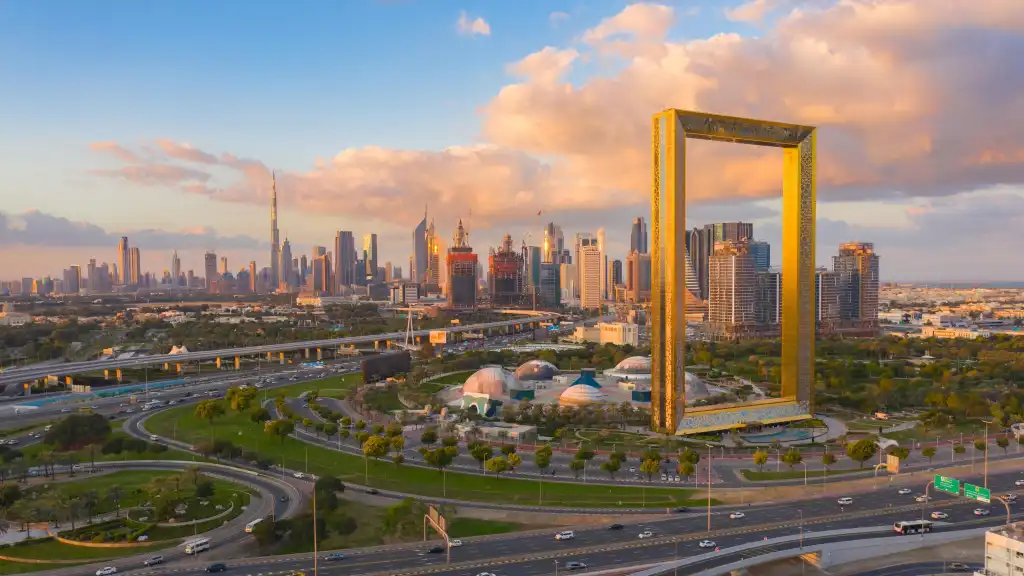The Gulf countries are quickly becoming some of the world’s top leaders in digital transformation. From government services to business, education, and everyday life, the Gulf is changing fast with new technology. This change is helping these nations grow their economies, improve citizens’ lives, and build a smart future. Let’s explore how this digital revolution is happening and why the Gulf is ahead of many other regions.
What Is Digital Transformation?
Digital transformation means using new technology to improve how things are done. It involves changing from old, slow ways to faster, more efficient methods by using digital tools. This could be online government services, smart city projects, or digital banking. The goal is to make everything easier, faster, and better for people.
In the Gulf, digital transformation is not just a trend; it is a key part of national strategies to prepare for the future. Countries like the United Arab Emirates (UAE), Saudi Arabia, Qatar, Bahrain, Kuwait, and Oman are investing heavily in this change.
Why Are Gulf Countries Focusing on Digital Transformation?

There are many reasons why Gulf countries are focusing on digital transformation:
- Economic Diversification: Most Gulf countries rely on oil and gas as their main income. Digital transformation helps create new industries like technology, finance, tourism, and healthcare, so they are less dependent on oil.
- Improving Government Services: Digital tools make government services faster and easier to use for citizens and businesses. People can apply for permits, pay bills, and access information online anytime.
- Boosting Innovation: Digital technology encourages innovation, entrepreneurship, and attracts global companies to invest and create jobs.
- Better Quality of Life: Smart cities, online education, and digital health services improve everyday life for residents and visitors.
The UAE: A Digital Pioneer
The UAE is one of the fastest-moving countries in digital transformation. The government’s “Smart Dubai” initiative aims to make Dubai the happiest and smartest city in the world. They use smart technology for everything from traffic management to public safety and customer services.
In addition, the UAE government launched the “Dubai Paperless Strategy,” aiming to eliminate all paper use in government services by 2021. This move saves time, money, and helps protect the environment.
Dubai also embraces new tech trends like blockchain, artificial intelligence (AI), and 5G internet. For example, the Dubai Blockchain Strategy plans to use blockchain technology in 50% of government transactions by 2025.
Saudi Arabia’s Vision for Digital Future
Saudi Arabia is not far behind. With its “Vision 2030” plan, the kingdom aims to transform its economy and society by investing heavily in technology.
The Saudi government is digitizing health services, education, and public administration. They are also supporting startups and new tech companies through special programs and funding.
One key project is the NEOM smart city, which will be a high-tech city powered by renewable energy and AI, designed to attract global talent and business.
Saudi Arabia also launched the “Saudi Digital Government Authority” to improve government services and create a digital environment for the public and private sectors.
Qatar’s Rapid Digital Growth
Qatar is making fast progress in digital transformation as well. The country is investing in smart city technologies and digital infrastructure as part of its National Vision 2030.
Qatar’s government services are increasingly digital, allowing citizens and residents to access many services online. The country also focuses on cybersecurity to protect data and privacy.
In addition, Qatar is preparing for the digital economy by supporting technology education and encouraging research and development in AI and robotics.
Bahrain, Kuwait, and Oman: Digital Growth and Opportunities
Other Gulf countries like Bahrain, Kuwait, and Oman are also working hard on digital transformation.
- Bahrain is developing its financial technology (fintech) sector and e-government services. The country hosts many tech startups and encourages innovation in the private sector.
- Kuwait is investing in digital infrastructure and smart government programs to improve public services and support the economy’s growth.
- Oman has launched digital platforms to improve services for citizens and businesses. The country is focusing on digital skills training to prepare its workforce for the future.
How Digital Transformation Benefits People
Digital transformation is not only about technology; it also brings real benefits to people living in the Gulf.
- Easier Access to Services: People can use apps or websites to do many things without leaving their homes, such as paying bills, renewing licenses, or booking medical appointments.
- Better Education: Online learning platforms and smart classrooms help students and teachers with more resources and flexibility.
- Health Improvements: Telemedicine and digital health records make it easier to get healthcare and keep medical information organized.
- Job Opportunities: New technology sectors create jobs and encourage young people to develop digital skills.
Challenges and the Road Ahead

Even with great progress, the Gulf countries face challenges in digital transformation:
- Cybersecurity: As more data moves online, protecting privacy and preventing cyber attacks is very important.
- Digital Divide: Ensuring that all people, including those in remote areas, have access to digital services and internet connectivity.
- Skills Gap: Training people with the right skills for new technology jobs remains a priority.
- Keeping Pace with Change: Technology evolves quickly, so governments and businesses need to stay flexible and keep updating their digital strategies.
Conclusion: A Digital Future for the Gulf
Gulf countries are setting a strong example for the world in digital transformation. Through smart investments, clear national plans, and a focus on innovation, they are creating a future where technology improves life for everyone.
From smart cities to digital governments, and from education to healthcare, the Gulf is moving quickly to become a hub for technology and innovation. While challenges remain, the region’s vision and commitment to digital transformation will likely keep it ahead in the global race.
Also read: Smart Cities in the Gulf: A Look at the Future of Urban Living



